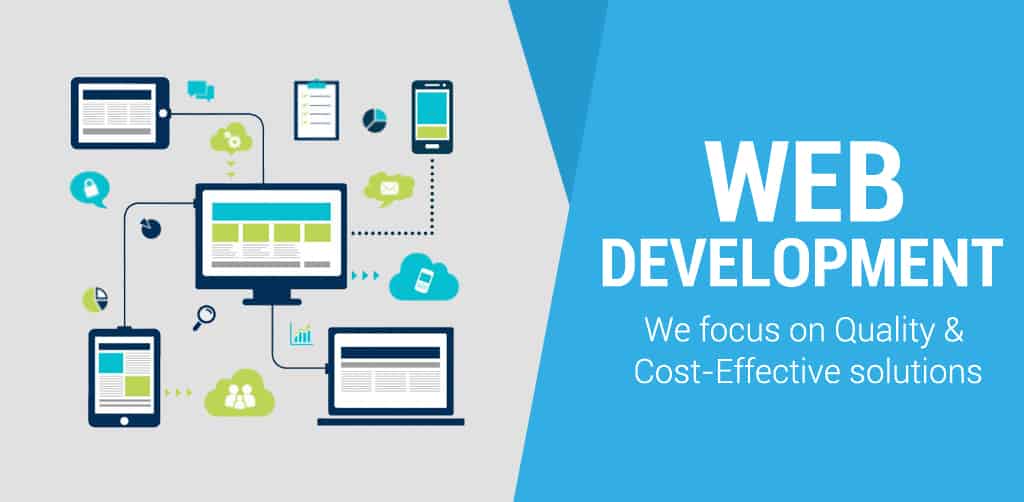Introduction
Website-building services are platforms or tools designed to help users create, design, and launch websites without requiring in-depth coding knowledge. These services streamline the web development process by offering pre-built templates, drag-and-drop editors, and integrated hosting solutions, allowing users to focus more on content and design rather than technical infrastructure.
In advanced terms, website building services use content management systems (CMS) or proprietary builders to provide an end-to-end solution, including:
- Customizable templates: Ready-made layouts that can be modified to suit brand aesthetics.
- Hosting and domain integration: These platforms often include hosting, making it easier to manage everything in one place.
- E-commerce capabilities: Built-in tools for online stores, payment gateways, and inventory management.
- SEO and analytics: Tools for optimizing websites for search engines and tracking user behavior.
For businesses like HYR.Digital , website-building services are a foundational element, but they are also limited by scalability and customization beyond what’s offered by the service itself. Advanced companies often complement these services with custom coding or migrate to more robust frameworks once the site grows beyond basic needs.

Photo by pexels
Website Building Services for Beginners
These platforms are user-friendly, affordable, and offer a range of features that are perfect for those who may not have extensive technical skills. Let’s dive in:
1. Wix
Wix is one of the most popular website builders, especially for beginners. It offers a drag-and-drop interface that allows users to create visually stunning websites without needing to write any code.
- Features:
- Over 800 customizable templates.
- Wix ADI (Artificial Design Intelligence) can create a site for you based on your answers to a few questions.
- Integrated SEO tools and a marketplace for adding apps.
- E-commerce functionality for online stores.
- Pros: Beginner-friendly, lots of templates, powerful design tools.
- Cons: Free plan comes with Wix ads, limited customization for advanced users.
2. Squarespace
Squarespace is well-known for its beautifully designed templates and is ideal for those in creative fields such as photographers, designers, and artists. Its clean and modern aesthetic makes it a favorite for portfolio websites.
- Features:
- Award-winning mobile-responsive templates.
- Built-in e-commerce features for selling products or services.
- Easy-to-use blogging and marketing tools.
- Reliable customer support with 24/7 access.
- Pros: Gorgeous templates, robust e-commerce capabilities, all-in-one platform.
- Cons: A bit pricier compared to others, limited design flexibility outside templates.
3. WordPress.com
For those who want more control over their website but still prefer a simplified experience, WordPress.com is a great option. While WordPress is known for its extensive customization, this managed version is more beginner-friendly.
- Features:
- Thousands of themes and plugins for customization.
- Built-in SEO tools and marketing options.
- Free plan with paid upgrades for additional features.
- You can migrate to self-hosted WordPress.org later for more control.
- Pros: Scalable, flexible, ideal for bloggers.
- Cons: Learning curve, free plan is quite limited.
4. Weebly
Weebly, owned by Square, is another drag-and-drop builder that’s perfect for small business owners and e-commerce beginners. It’s incredibly simple to use, offering essential tools to build a site quickly.
- Features:
- E-commerce integration for easy online selling.
- App Center for adding additional functionality like analytics, email marketing, and social media.
- Responsive templates and design.
- SEO tools and analytics built in.
- Pros: Great for e-commerce, affordable pricing, simple user interface.
- Cons: Limited customization for advanced users, fewer templates compared to Wix.
5. Zyro
Zyro is a newer website builder that has gained traction for its simplicity and affordability. It’s a budget-friendly option for beginners who want to launch their website fast without breaking the bank.
- Features:
- AI tools for automatic website creation, logo maker, and content generation.
- Over 100 pre-designed templates.
- Integrated SEO and marketing tools.
- E-commerce capabilities to start an online store.
- Pros: Extremely affordable, easy to use, fast site setup.
- Cons: Fewer templates, less flexibility for customization.
Conclusion
For 2024, these website builders stand out as the top choices for beginners. Platforms like Wix and Squarespace offer stunning designs, while WordPress.com and Weebly provide scalability and business-friendly tools. Zyro is ideal for those seeking affordability and ease of use. Each option caters to different needs, so choose the one that fits your goals—whether that’s starting a personal blog, building a creative portfolio, or launching an e-commerce store.
HYR.Digital expertise in designing and supporting websites can enhance your selection with customized solutions tailored for higher conversions and optimal performance.



“Simply extraordinary! ✨ Your in-depth analysis and crystal-clear explanations make this a must-read. The amount of valuable information you’ve packed in here is amazing.”